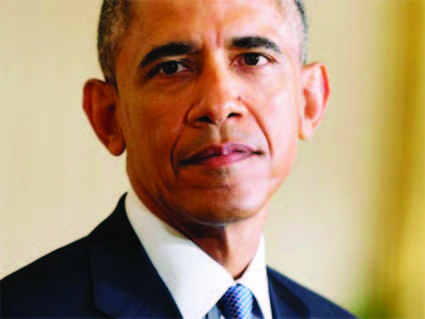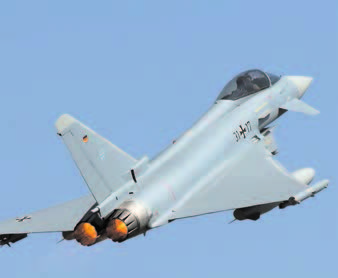
Thursday (July 28) morning, many of us found ourselves riveted to television screens, listening to President Barack Obama deliver one of the most substantive and wise speeches by any world leader in recent years. Of course, he was speaking at the Democratic Party’s National Convention in Philadelphia. Such conventions in American politics are primarily tribal gatherings, with well-honed rites and rituals of endorsement, denunciation and demonization. Expectedly, Obama did all that – and, then a bit more. He ended up educating the Americans and the rest of the world in the principles and practices of leadership.

In outlining differences between Hillary Clinton and her Republican opponent, Donald Trump, President Obama reflected on what constitutes leadership, particularly in these troubled times when the world order is looking somewhat frayed. These reflections were worth every penny because this is the time when political leaders, especially in the West, are being fashionably run down as unable and ill-equipped to address the concerns of their disillusioned, disenchanted and disenfranchised citizens. The masses are supposed to be in some kind of ‘revolt’ against the political classes. Suddenly, the world over, there appears be a clamor for the boorish demagogue, who does not care for the so-called elites and their expertise and addresses himself, instead, directly to the modern equivalent of the unwashed millions. The damage such demagogues can inflict on a society’s political and social stability was very much evident in the recent British referendum on the European Union. Britain is no exception. All over, inciters and imposters are finding victims among gullible and confused citizens.
In Philadelphia, Obama spoke up against this global current of demagogic sales-pitch. In endorsing Hillary Clinton and indirectly depreciating Donald Trump, Obama sought to wean the Americans and other citizens the world over from the seductive charm of the slogan-mongers. (We in India are not unfamiliar with this phenomenon and its bewitching potential. We have even coined a name for it, too: jumala-baazi). Obama courageously cautioned against those who seek to use the pulpit to fan “resentment, and blame, and anger, and hate.” The demagogue preys on the citizens’ anxieties about a world the national governments are no longer able to cope with, leave alone control and coerce.
President Obama has the experience and the credentials to be critical of Donald Trump for “not offering any real solutions” and, instead, “just offering slogans, and offering fear.” Despite being a partisan at a patently partisan show, Obama’s censure does underscore the complexities of the modern-day government.
Presiding over a country – any country – is a complicated affair. Everyone wants change and every two-penny bit of a politico promises change with a capital C. But what Obama managed to underline was the stark reality: there are no teach-it-yourself manuals for the business of government, the science of governance and the art of governing. It is easy to promise and not all that easy to deliver. He was warning not just the Americans but also the voting citizens all over the world: beware of the man who sells a quick-fix. There are no quick-fixes, as we have been discovering for ourselves since May 2014.
Democratic voices and forces all over the world would be grateful to President Obama for reminding us once again that a democracy does not depend upon one person. Instead, the beauty of democracy is that its resilience and resourcefulness empower one and all: “Our power does not come from a self-declared savior promising that he alone can restore order. We don’t look to be ruled.” In making this assertion, Obama raised his voice against the ever-present weakness for the megalomaniac and against the shaman and his black bag of magic medicines.
A democratic polity, be it in India, America or England, is an arrangement of institutions and processes and protocols. A democratic system intrinsically frowns upon potential Caesars and other purveyors of personality cult. Authority in democracy can only be an institutionalized exercise of power.
Leadership means not just arousing the passions and animosities of your followers; it means enlisting the support and cooperation of your rivals once the vote is over. “It’s creating the possibility for people of goodwill to join and make things better,” Obama proposed.
An essential corollary of this proposition is that a true leader is not intimidated by talent around him or her, is not afraid of other brilliant and bright men and women, and does not surround himself with mediocrities and second-raters. In our own case, at the most critical moment of modern history, Jawaharlal Nehru and Sardar Patel, though rivals, made a formidable diarchy; and, with the Mahatma’s blessing, they were willing to -and, did – share power and space and public gaze with those who were not their political associates in the fight against the British. The post-Independence leadership felt secure enough to invite ‘rivals’ and outsiders to be part of the Cabinet and become partners in the great task of rebuilding the new Indian State.
An essential element of leadership has to be a capacity to work with other people. Not a one-man show. As Obama noted that “even when you’re 100 per cent right, getting things done requires compromise. That democracy does not work if we constantly demonize each other.” (His admonition can well be directed at Arvind Kejriwal‘s AAP government and its equally unsparing rivals in the Modi sarkar).
As Obama would tell us, leadership is not about instigating followers to a civil war; nor is it about deepening society’s divisions and fault-lines. Leadership is about tapping collective positive impulses and energy. Or, as Obama put it, cultivating and nurturing “bonds of affection; that common creed.” Leadership is about summoning citizens to rise above their petty animosities and prejudices. Invoking inclusiveness is a primary obligation for any leader because every country is a divided society. Obama was brilliant and courageous in acknowledging the diversity among the Americans “whether they wore a cowboy hat or a yarmulke; a baseball cap or a hijab.” We should certainly be able to feel the import of these words at a time when the majority in India feels itself empowered enough to beat up the minorities. But Obama argued that politics of togetherness will always trump the politics of divisiveness. “We are stronger together,” he intoned.
And, summoning togetherness is not at all easy a task. Because that involves offering a moral leadership. Obama exhorted the Americans to “reject cynicism, reject fear, to summon what’s best in us.” This is not just an American requirement; this is an axiom that has to be valid and relevant in every country around the world.
(Yale alumnus author is a former Media Advisor of the Indian Prime Minister. He remained in Prime Minister's Office from June 2009 to January 2012)





Be the first to comment